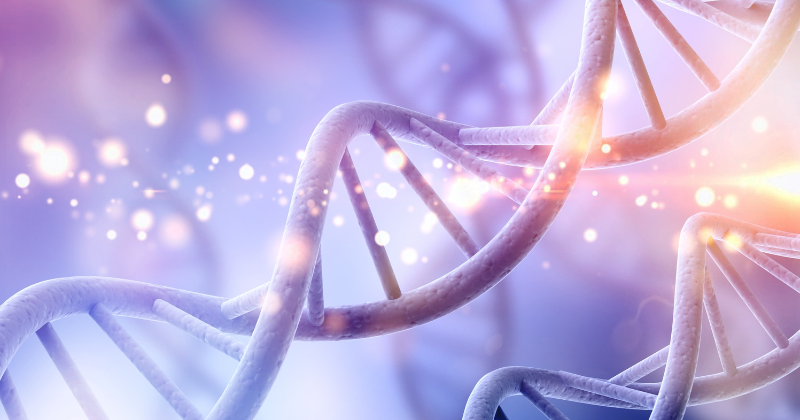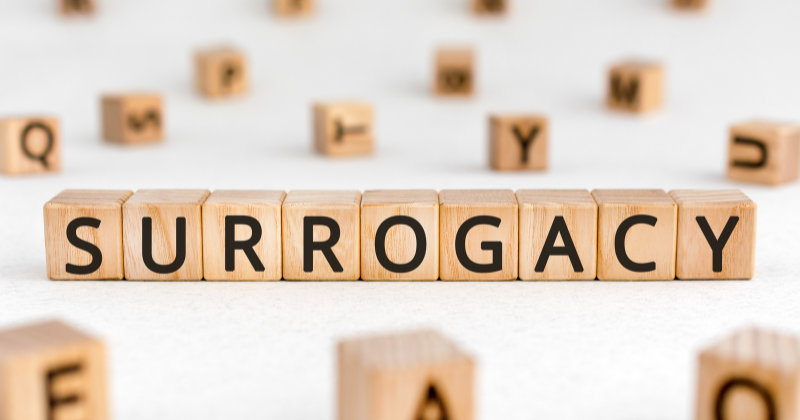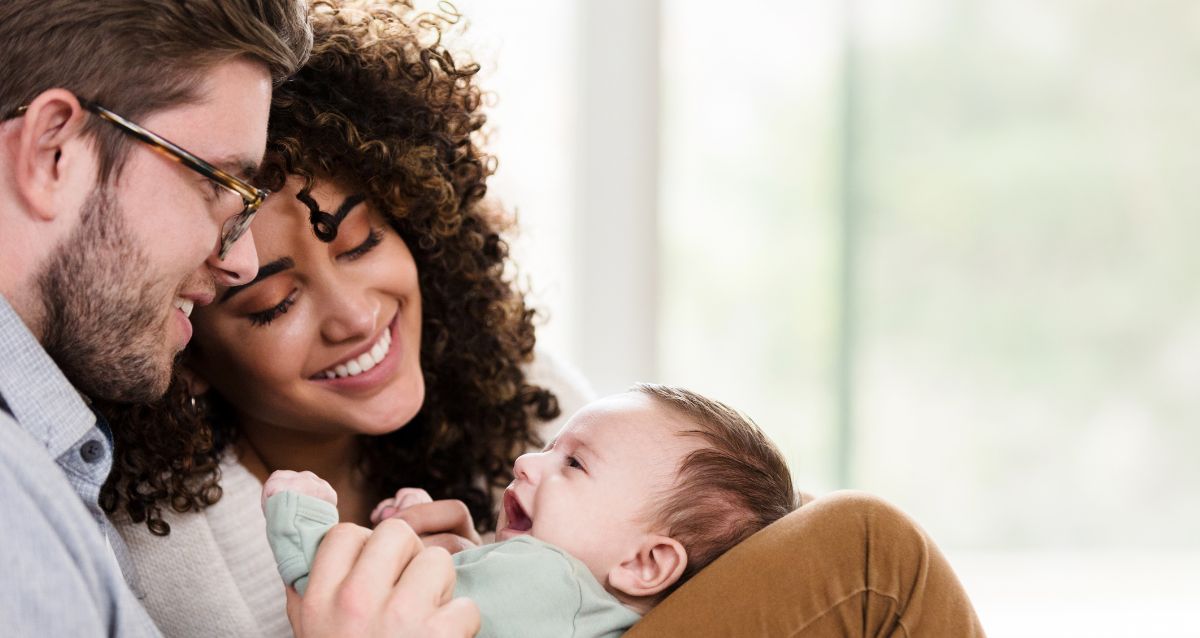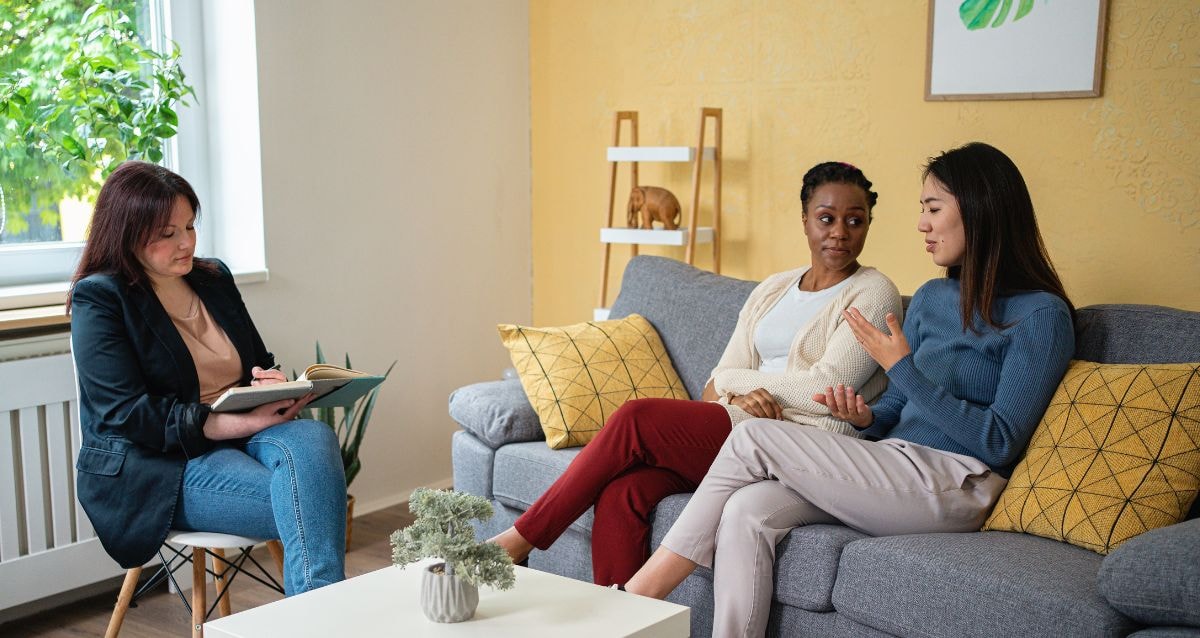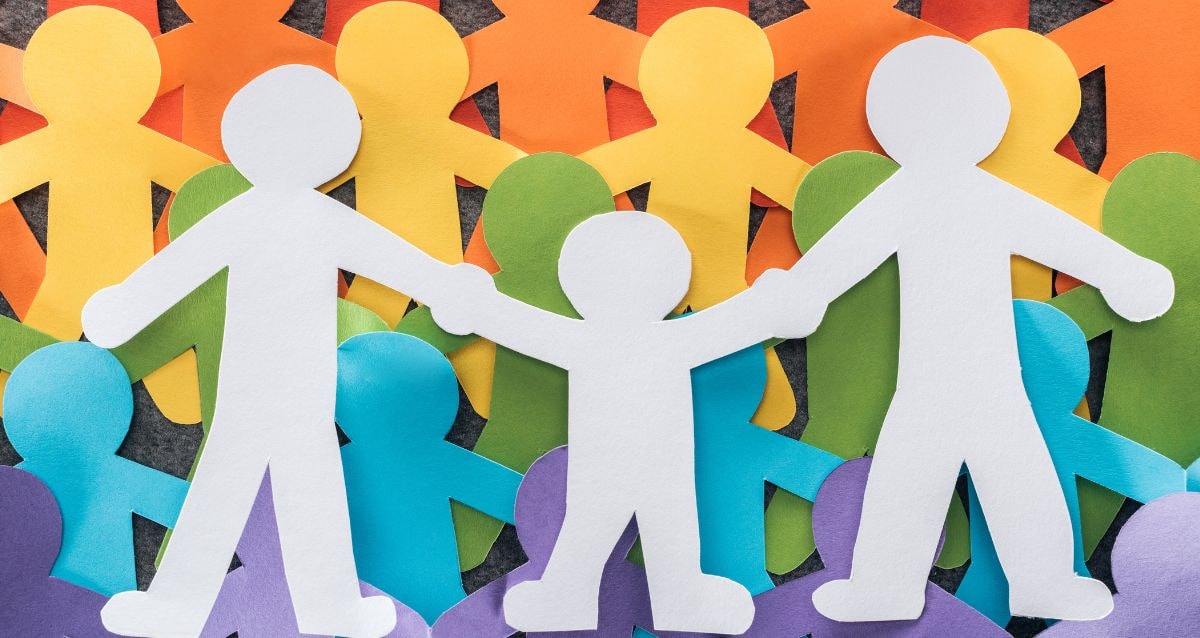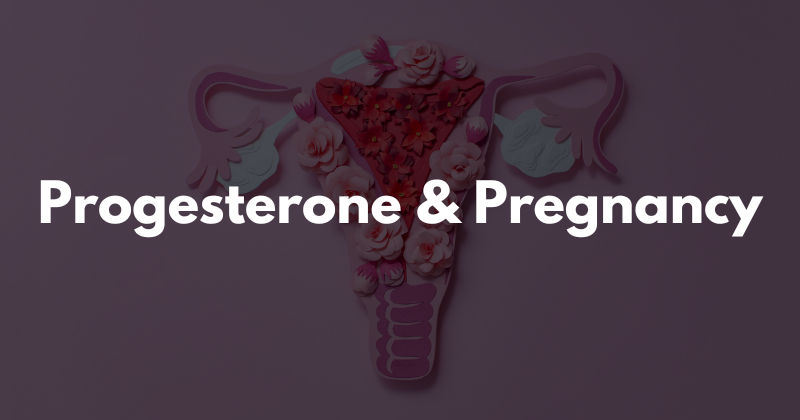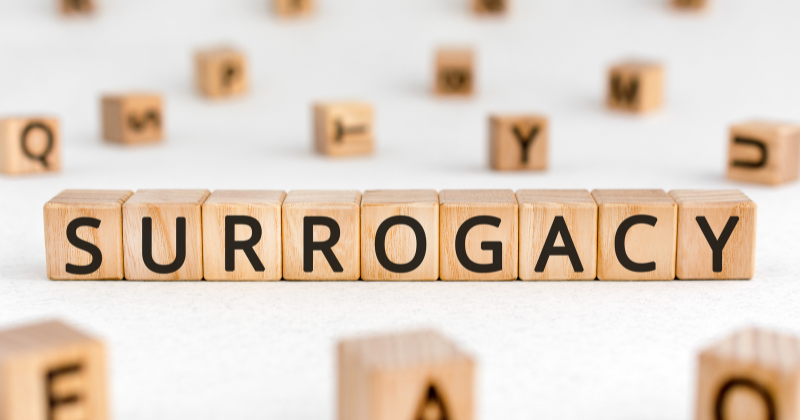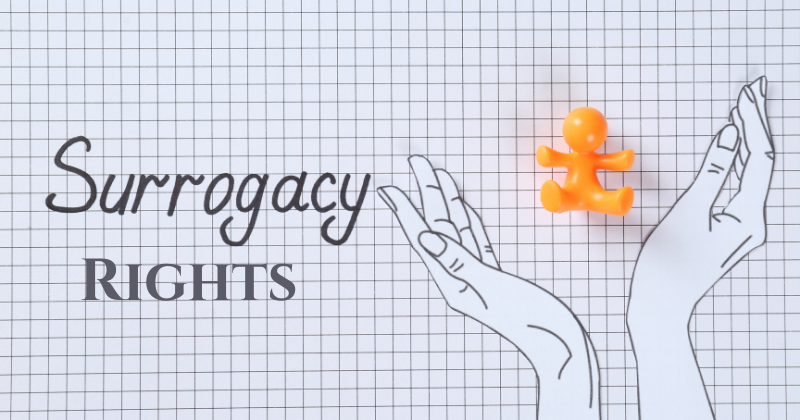Have you ever heard of surrogacy and wondered how it works?
It’s like this: sometimes, a woman can’t carry a baby herself, so another woman, called a surrogate, helps bring the baby.
But here’s the big question: does the surrogate mother share any DNA with the baby she carries?
In most cases, the answer is no!
This is because there are two types of surrogacy, and only one of them involves the surrogate’s genes.
In this blog post, we’ll unravel the fascinating science behind surrogacy and explore whether a surrogate mother shares DNA with the baby.
TL;DR:
In the most common type of surrogacy (gestational surrogacy), the surrogate mother does not share DNA with the baby.
The baby’s DNA comes from the intended parents or egg/sperm donors.
The surrogate simply provides a nurturing environment for the baby to grow.
Think of her like an oven, not the baker!
Understanding Surrogacy
Okay, let’s dive deeper into how surrogacy works! There are two main types:
- Traditional Surrogacy: The surrogate mother is like a baker who uses her ingredients (her egg) to bake a cake (the baby). In this case, she’s the biological mother because her egg created the baby, which means she shares DNA with the baby.
- Gestational Surrogacy: Imagine the surrogate mother as an oven. The ingredients (the egg and sperm) come from the intended parents or donors. The surrogate’s body provides a warm and safe place for the baby to grow. This is the most common type of surrogacy, and in this case, the surrogate is not the biological mother. She doesn’t share any DNA with the surrogate baby.
Both gestational and traditional surrogacy involve some pretty amazing science.
Doctors use a process called IVF, which stands for in vitro fertilization.
This means they combine an egg and sperm in a lab to create an embryo (the very beginning stage of a baby).
Then, they carefully transfer this embryo to the surrogate’s uterus (her womb).
Surrogacy can be a bit complicated, and some important legal and ethical things must be considered.
For example, who are the legal parents of the surrogate baby?
What’s best for the surrogate mother and the baby?
These are all things that need to be discussed and agreed upon before anyone starts the surrogacy process.
Does a Surrogate Mother Share DNA with the Baby?
It can get a little confusing here, so let’s break it down!
Gestational Surrogacy
Remember how we said the gestational surrogate is like an oven?
That means she doesn’t share any DNA with the baby.
Think of it this way: the surrogate baby’s DNA comes from the egg and the sperm, just like any other baby’s.
In gestational surrogacy, the egg comes from the intended mother or an egg donor, and the sperm comes from the intended father or a sperm donor.
The gestational surrogate provides a safe and nurturing place for the baby to grow.
Traditional Surrogacy
In traditional surrogacy, things are a bit different.
She shares DNA with the baby because the surrogate’s egg is used.
This means she’s the biological mother, and the baby will inherit some of her traits, like eye or hair color.
Busting those Myths!
You might hear some tall tales about surrogacy, but don’t believe everything you hear!
Some people think that what a surrogate mother eats or how she feels can change the baby’s genes.
But that’s not true! In gestational surrogacy, the surrogate mother cannot transfer DNA to the baby.
The baby’s genes are set from when the egg and sperm meet.
Another myth is that the baby will look like the surrogate mother.
Again, this is not valid in gestational surrogacy! The baby inherits its looks from those who provide the egg and sperm.
We know you might have more questions about the surrogacy process, and that’s normal!
Check out our Surrogacy FAQs page for answers to even more questions.
The Science Behind It
Okay, it’s time for a quick science lesson! Don’t worry, it won’t be too complicated.
DNA: Your Body’s Instruction Manual
Imagine your body is like an extraordinary LEGO creation.
Your DNA is like the instruction manual that tells your body how to build itself.
It determines your eye color, hair color, and even height.
This genetic material is passed down from your parents to you.
Eggs and Sperm: The Key Ingredients
To make a baby, you need an egg from a woman and sperm from a man.
These are the only things that carry the DNA needed to create a new person.
When the egg and sperm meet, their DNA combines to form unique instructions for the new baby.
The Surrogate’s Role
In gestational surrogacy, the gestational surrogate mother doesn’t provide any of this genetic material.
Her body is simply the fantastic place where the baby grows and develops.
She’s like a gardener who provides the perfect environment for a seed to sprout and flourish.
But what about epigenetics?
Now, here’s where it gets a tiny bit more complex.
You see, even though the surrogate mother’s DNA isn’t directly in the baby, the environment inside her uterus can slightly affect how the baby’s genes are expressed.
It’s like how a plant can grow differently depending on its soil.
But don’t worry. These changes are usually small and don’t change the baby’s basic DNA instructions.
We know this is a lot to take in!
But the main takeaway is that in gestational surrogacy, the baby is not surrogate mother related in terms of DNA.
The baby’s genes come from the egg and sperm providers.
And in case you were wondering, there are limits on how many times you can be a surrogate mother.
A woman’s body can only handle so many pregnancies, and doctors want to make sure everyone stays safe and healthy throughout the surrogacy journey.
Emotional and Psychological Aspects
Surrogacy can be a rollercoaster of emotions for everyone involved. Let’s talk about some of the feelings that might come up.
The Surrogate’s Feelings
Carrying a baby for nine months is a big deal!
It’s natural for a surrogate mother to form a bond with the baby she’s carrying, even though she knows the baby will go home with the intended parents.
It can be a bit bittersweet when the baby is born.
There might be feelings of joy but also some sadness.
ISurrogate mothers need to have support from friends, family, and maybe even a therapist during this time.
The Intended Parents’ Feelings
Intended parents go through a lot, too!
They might feel excited, nervous, and maybe even a little impatient as they wait for their baby to arrive.
It’s essential for them to be understanding of the surrogate mother’s feelings and to communicate openly with her throughout the journey.
What about the child?
Children born through surrogacy might have questions about how they were born.
Parents need to be open and honest with their children in a way they can understand.
They can explain that they needed help from a wonderful woman to grow their family.
They can also talk about the egg donor if one was used, and the intended father’s sperm, helping the child understand where they came from.
Surrogacy can be a beautiful way to build a family, but it’s important to remember that everyone has feelings.
Talking about those feelings and supporting each other is essential!
Surrogacy Success Stories
Surrogacy can seem complicated, but it leads to some fantastic outcomes!
Let’s hear about some families who have been through this incredible journey.
- The Smiths: Sarah and Michael Smith always dreamed of having a child, but Sarah couldn’t carry a pregnancy. They found a wonderful surrogate named Jessica, who helped them achieve their dream. Jessica brought their baby for nine months, and now the Smiths have a beautiful baby boy! They are so grateful to Jessica for giving them the gift of parenthood.
- The Johnsons: Mark and David Johnson are a same-sex couple who wanted to start a family. They used an egg donor and David’s sperm to create an embryo. Their friend Lisa, who had her children, offered to be their surrogate. Lisa wanted to help Mark and David experience the joy of fatherhood. Now, they have a sweet baby girl and are one big happy family!
- Maria: Maria is a single woman who always wanted to be a mother. She decided to use a sperm donor and a surrogate to have a child. Her surrogate, named Amy, was incredibly supportive throughout the whole process. Maria is now a proud mom to a healthy baby girl!
These stories show us that there are many different paths to parenthood.
Surrogacy can help people who face challenges with having children on their own.
It’s a beautiful way to create families and share love.
And remember, in most cases, like with these families, the surrogate mother did not surrogate mother transfer DNA to the baby.
The surrogacy affect is all about love, support, and helping others achieve their dreams of having a family.
Finding the Right Surrogacy Resources
So, you’ve learned a lot about surrogacy, and maybe you’re even thinking about it for yourself!
Whether you’re hoping to be a surrogate or you’re looking for a surrogate to help you build your family, it’s essential to find the right resources and support.
- Surrogacy Agencies: Surrogacy agencies are like matchmakers! They help connect intended parents with surrogates and guide everyone through the legal and medical parts of the process. A good agency will ensure everyone is treated fairly and everything is done safely.
- Support Groups: Talking to other people who have been through surrogacy can be helpful. Support groups are a great place to share your experiences, ask questions, and get advice. You can find online support groups or even ones that meet in person.
- Legal Help: Surrogacy involves complicated legal issues, such as contracts and parental rights. Having a lawyer who knows all about surrogacy laws is essential to help you understand your rights and ensure everything is done correctly.
- Florida Surrogacy Program: If you’re in Florida, you might want to check out the Florida surrogacy program. They can help you find local resources and connect you with experienced professionals.
Remember, surrogacy is a big decision, and it’s essential to do your research and find people you trust to help you along the way.
Don’t be afraid to ask questions and seek support!
Conclusion
So, there you have it! We’ve learned a lot about surrogacy today.
The most important thing to remember is that in most surrogacy cases, the surrogate mother doesn’t share DNA with the baby.
She’s like a fantastic helper who provides a safe place for the baby to grow.
We talked about the two types of surrogacy, traditional and gestational.
We learned about DNA and how babies get their genes from eggs and sperm. We even talked about the feelings that come with surrogacy.
Surrogacy is an accurate way to build a family.
It helps people who can’t have children on their own become parents. It’s pretty amazing what science and love can do together!
It’s an exciting time, and we can’t wait to see what happens next!
Frequently Asked Questions
How much does a surrogate mother get paid?
Surrogate compensation varies depending on experience, location, and the specifics of the surrogacy arrangement. It typically ranges from $20,000 to $60,000, plus medical bills and legal fees.
What are the requirements to become a surrogate?
Generally, surrogates need to be between 21 and 45 years old, have had at least one healthy pregnancy and delivery, and pass medical and psychological screenings.
How long does the surrogacy process take?
From the initial consultation to the baby’s birth, the surrogacy process can take 12 to 18 months or even longer. It involves matching with intended parents, legal agreements, medical procedures, and the pregnancy.
Can a surrogate mother keep the baby?
In gestational surrogacy, the surrogate has no genetic link to the baby and cannot legally keep the baby. Legal agreements are established beforehand to ensure the intended parents are recognized as the legal parents.
What are the risks of surrogacy?
Like any pregnancy, surrogacy carries some medical risks for the surrogate, such as preeclampsia or gestational diabetes. There can also be emotional challenges for all parties involved.
Wendy Arker entered the field of infertility with a huge heart and passion to guild others on their quest to grow their own family after her personal journey with infertility and turning to egg donation and sperm donation to create her own family. Being a single-mother-by-choice, Wendy understands firsthand the unique way families are built. Whether you’re a married couple, single, or LBGTQ, Creative Love is committed to assisting you.




